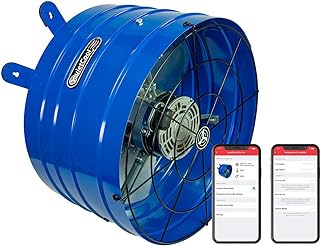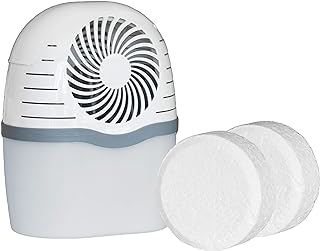5 important factors worth considering when looking for the best extension cord for appliances
Selecting the proper extension cord is crucial for the safety and effectiveness of your household appliances. With numerous options on the market, it can be overwhelming to choose the right one. By carefully thinking about factors like length, amperage rating, material quality, and safety features, you can ensure a smooth experience that enhances your appliances’ performance while keeping your home and family safe. This article explores these important factors to help you make a smart decision that fits your needs and preferences.
See our guide to the best extension cord for appliances.
Length of the cord
When you’re buying an extension cord for your appliances, don’t forget to consider the length of the cord. From my experience, choosing a longer cord can make it much easier to set up your living space the way you want. While it might seem like a good idea to save money by picking a shorter cord, dealing with constantly moving your appliances or struggling to reach an outlet can quickly become frustrating. Plus, a longer cord gives you more flexibility and reduces the need for multiple cords in one room, keeping things neater and safer.
Getting a longer extension cord not only makes your daily routine simpler, but also makes it easier to use your appliances. With a longer cord, you can place your devices anywhere in the room without feeling limited. This is especially helpful in areas with few outlets or awkwardly placed ones. In the end, the convenience and flexibility of a longer cord is well worth any extra cost. So, next time you’re shopping for an extension cord, think about choosing a longer one to make your life a bit easier and more efficient.
Gauge of the wire
When it comes to choosing the right extension cord for your household appliances, you need to pay attention to the thickness of the wire, which is known as the gauge. This is important because the gauge determines how much electrical load the cord can handle. For powerful appliances like refrigerators or heaters, it’s best to use a lower gauge wire, such as 12 or 14, because it allows for efficient power flow and reduces the risk of overheating. Using smaller gauge wires with high-power appliances can cause voltage drop, inefficiency, and safety hazards due to overheating.
Choosing extension cords with the right wire gauge not only protects your appliances but also improves their performance. For devices like lamps or chargers that require less power, a higher gauge wire like 16 or 18 is suitable without compromising safety. Understanding the connection between wire gauge and electrical load helps you make informed decisions that benefit your appliances in the long run. Prioritizing the wire gauge in your extension cord selection shows that you care about safety and the efficient functioning of your household.
So, remember, next time you’re buying an extension cord, consider the wire gauge as a crucial factor for the performance and safety of your electrical appliances.
Type of plug and outlets
When you’re picking out an extension cord for your appliances, it’s important to consider the type of plugs and outlets it has. Using cords with plugs and outlets that don’t match can cause problems with how your appliances work and can even be dangerous. It’s essential to make sure that the plugs and outlets on the cord are the right ones for your appliances to make sure they work well and to prevent any electrical issues. Buying extension cords with the correct plug and outlet setup not only ensures that everything connects properly but also creates a safe environment for your appliances to run smoothly.
In addition, selecting the right plug and outlet combination for your extension cord shows that you are being proactive about safety in your home. By matching the cord’s specifications to your appliances’ needs, you reduce the risk of overloading circuits or causing shorts. This careful selection process can help prevent damage to your appliances and electrical systems, extending their lifespan and keeping the power supply stable. Ultimately, making sure the plugs and outlets on your extension cords match your appliances is a crucial part of responsible appliance management that you shouldn’t ignore.
Safety certifications
When buying extension cords for your appliances, it’s important to look for safety certifications to keep your home safe. Choosing cords that have been tested and approved by reputable organizations can give you peace of mind and protect you from potential dangers. These certifications guarantee that the cord meets safety standards and has been thoroughly checked for durability and resistance to overloading, overheating, and other electrical risks. Prioritizing safety certifications can help prevent accidents and keep your home safe.
Picking extension cords with recognized safety certifications not only protects your appliances but also keeps your family safe from electrical accidents. Investing in cords with trusted certifications reduces the risk of fires, electric shocks, and damage to your equipment. Certified cords often have safety features like surge protection and insulation, making them more reliable. Choosing cords based on safety certifications shows that you care about the safety of your family and is a smart choice for any responsible homeowner who wants to prioritize safety without sacrificing functionality or convenience.
Maximum wattage supported
When you’re deciding which extension cord to buy for your appliances, one important thing to consider is how much wattage it can handle. If you use an extension cord that can’t handle the wattage your appliances need, it could overheat or even cause a fire. To stay safe and make sure everything runs smoothly, make sure the wattage rating of the extension cord matches the total wattage of the devices you’re connecting. This isn’t just about convenience – it’s also a crucial safety step that you shouldn’t ignore.
While it might seem like a good idea to get an extension cord with a higher wattage rating than your appliance needs, it’s important to find the right balance. You want to avoid wasting energy and risking damage by choosing a cord that can handle your device’s requirements without going overboard. By picking the right extension cord based on its maximum wattage capability, you’re not only protecting your appliances but also focusing on safety and efficiency in your electrical setup. Remember, investing in a high-quality extension cord that matches your appliances’ wattage needs is a smart choice that ensures your electrical connections are reliable and long-lasting.
Conclusion
In today’s world, convenience is often seen as more important than safety. It’s crucial to think carefully about using extension cords with appliances. These cords can provide a temporary way to get power, but using them incorrectly can be dangerous. It’s up to each of us to follow the guidelines for using them correctly. This means not putting too much strain on the cords and only using them when needed, not as a permanent solution. If we focus on being careful and paying attention, we can use extension cords in a way that’s practical without putting our homes and families at risk.

